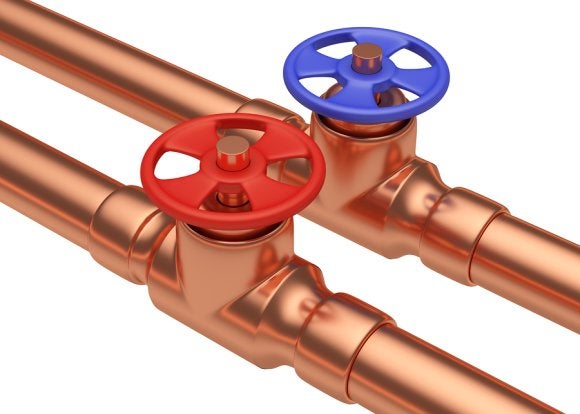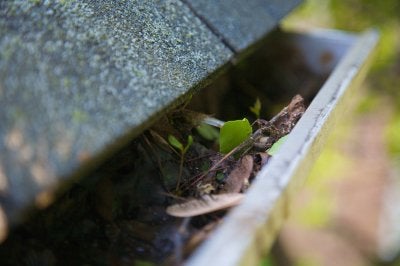-
Choosing New Plumbing Pipes
Most of the typical home’s plumbing system is out of sight; however, it should not be out of mind. When choosing piping for a new home or a renovation, it’s important that you know the different kinds and their advantages. This video from This Old House offers some insight.
Galvanized steel was the standard pipe for a long time, but today is only used for limited retrofitting. Most plumbers today use copper piping for more expansive projects. That said, the high cost of copper has led many to use PVC and CPVC plastic piping. Still others turn to multicolored PEX piping, which is inexpensive and very easy to install. This video also touches on various pipe fittings and methods used to create a water-tight seal.
-
Comparing PEX and Copper Pipes
Choosing the right type of pipe is vital for your home plumbing. Though you should always heed the advice of your Elmhurst plumber , it helps to know more about what you’re agreeing to. For example, you might take a minute to learn about the differences between two common types of piping: PEX (cross-linked polyethylene) and copper.
PEX piping usually comes in different colors, including blue for cold water and red for hot. It’s also very flexible and requires fewer fittings, making it very easy for plumbers to install. PEX piping can save you in terms of material cost and in the cost of labor. Copper, though more expensive, is a tried and true piping material because it resists corrosion and is unaffected by UV light. That said, copper can corrode if the pH of your local water is too acidic or too basic. PEX also has its share of disadvantages: for example, it can’t be used outside and it can’t be recycled. The type of piping you choose depends on your budget, the nature of the project, and several other factors.

-
Why Do You Have a Clogged Kitchen Sink?
Any chef will tell you that the kitchen sink is an extremely important fixture. It’s essential for drinking water, washing, and disposing of certain liquids. When the kitchen sink starts draining slowly or stops draining completely, it can be a huge deal. The best thing to do in this situation is to call an experienced Elmhurst plumbing professional and avoid chemical drain cleaners. In an ideal world, of course, you would prevent the clog from happening in the first place. Here are a few of the most common causes of kitchen sink clogs.

Hardened Grease
Life would be so much easier if it were okay to flush cooking grease down the drain. Unfortunately, it simply isn’t. Though grease may be a liquid when it’s hot, it turns solid when it cools. If you send hot grease down the drain, it will be a matter of minutes before it cools and hardens, which could lead to a blockage. The best way to dispose of hot grease is to pour it into a can in your kitchen, then throw that can into the garbage once it’s full.
Coffee Grounds and Eggshells
If your kitchen sink has a garbage disposal, you might be more inclined to send more substantial items down it. However, even the most advanced garbage disposals aren’t equipped to handle things like coffee grounds and eggshells. These items can cause a clog in your kitchen drain, or at the very least damage your garbage disposal. To get rid of eggshells and coffee grains, either put them in the compost or throw them in the garbage.
Other Food Debris
Depending on the complexity of your meals, cooking can be a hectic endeavor. You may find yourself so busy with broiling and sautéing that you don’t pay too much attention to what’s going down your drain. Small food particles are generally fine, but larger pieces of food can cause real problems. The best way to prevent this is to install a drain guard , which should catch larger food pieces.
-
The Most Common Causes of Basement Flooding
Whether it’s finished or unfinished, a basement can be a very useful space. Unfortunately, it’s the one place that’s most vulnerable to flooding. If you notice excess water in your basement, it’s important that you call an Elmhurst plumber or another professional as soon as possible. Your flooding is most likely caused by one of the following.

Improper Drainage
Every property in the city should be configured in such a way that allows water to run away from the house and into the municipal sewer system. If your property has a slope or ditch that doesn’t allow for this type of drainage, then there’s a good chance that water will flood into your basement. If this happens, you’re best off having a professional reconfigure your home’s drainage.
Clogged Gutter
Gutters are designed to collect the water that falls on your roof and channel it away from the home. If debris gets stuck in the gutter, water can’t get where it needs to go, causing it to instead spill onto the base of your home. Over time, the water from the clogged gutter could find its way into your basement.
Poor Sealing
After a period of heavy rain, the ground water around your property is likely to swell. The lower floor of your home should be protected by a sturdy seal; if it isn’t, there’s a good chance water could get in during or soon after a rain storm. As you can imagine, poor sealing is also implicated in flooding caused by poor drainage and clogged gutters.
Backed Up Sewer
The municipal sewer system can get overburdened during periods of high water volume, causing sewer water to back up into certain homes. After the next prolonged rain storm, be sure to keep an eye on any drains in your basement—including drains found in a downstairs bathroom or a laundry room drain.
Burst Pipe
It’s relatively common for pipes to freeze and burst during the cold months. If left unattended, a burst pipe can result in thousands of dollars of water damage . The best way to avoid this is to keep the indoor temperature above 55 degrees at all times.
RECENT POSTS
categories
- Uncategorized
- Plumbing Services
- Residential Plumbing
- Flood Control
- Pipe Repair
- Sewer Line
- Emergency Plumber
- Plumbing Leak
- General Plumbing
- Clogged Drains
- Frozen Pipes
- Property Damage
- Drain guard
- Copper Pipes
- Commercial Plumbing
- Elmhurst plumber
- plumbing system
- Burst Pipes
- Plumbing pipes
- Water damage
- Hydrojetting
- PVC and CPVC
- PEX
- garbage disposal
